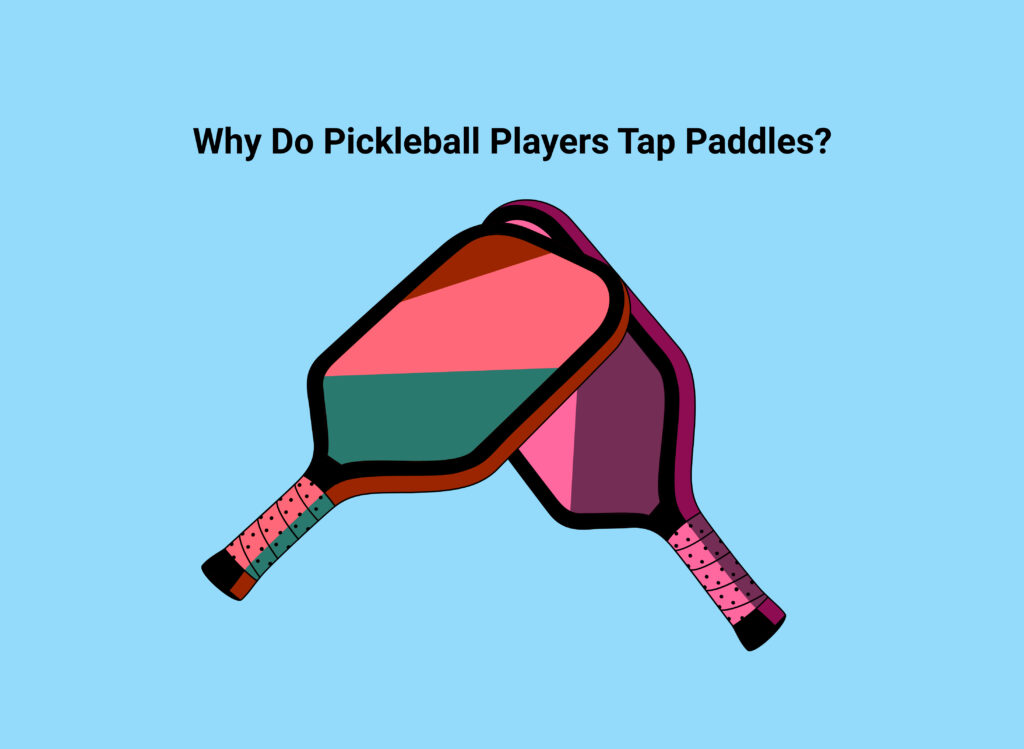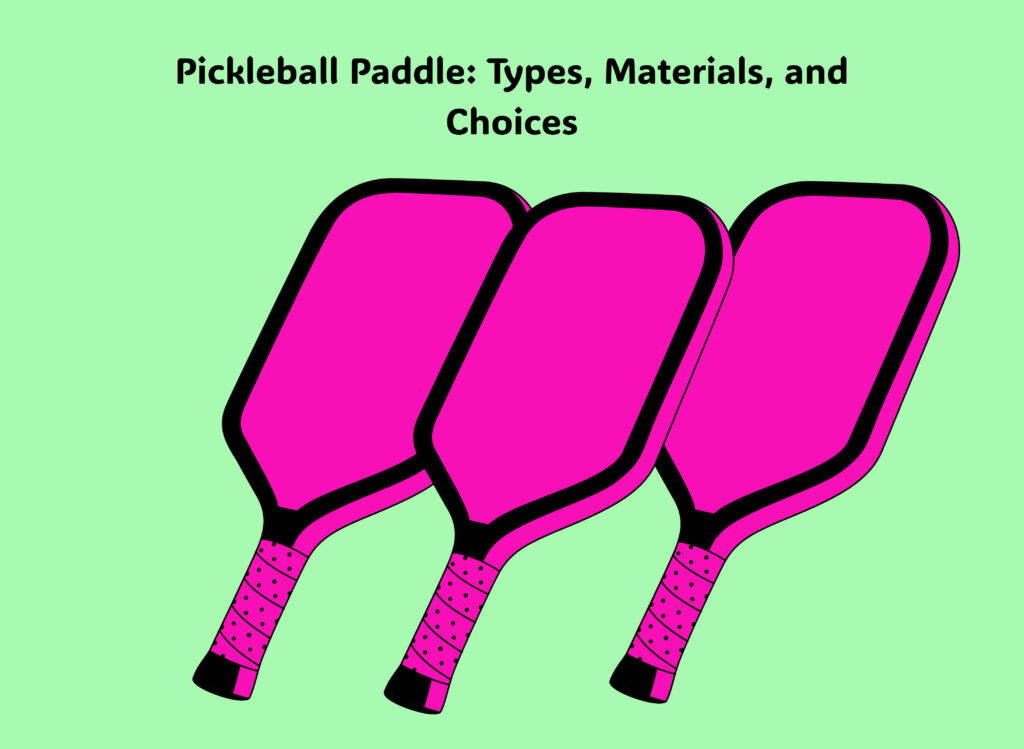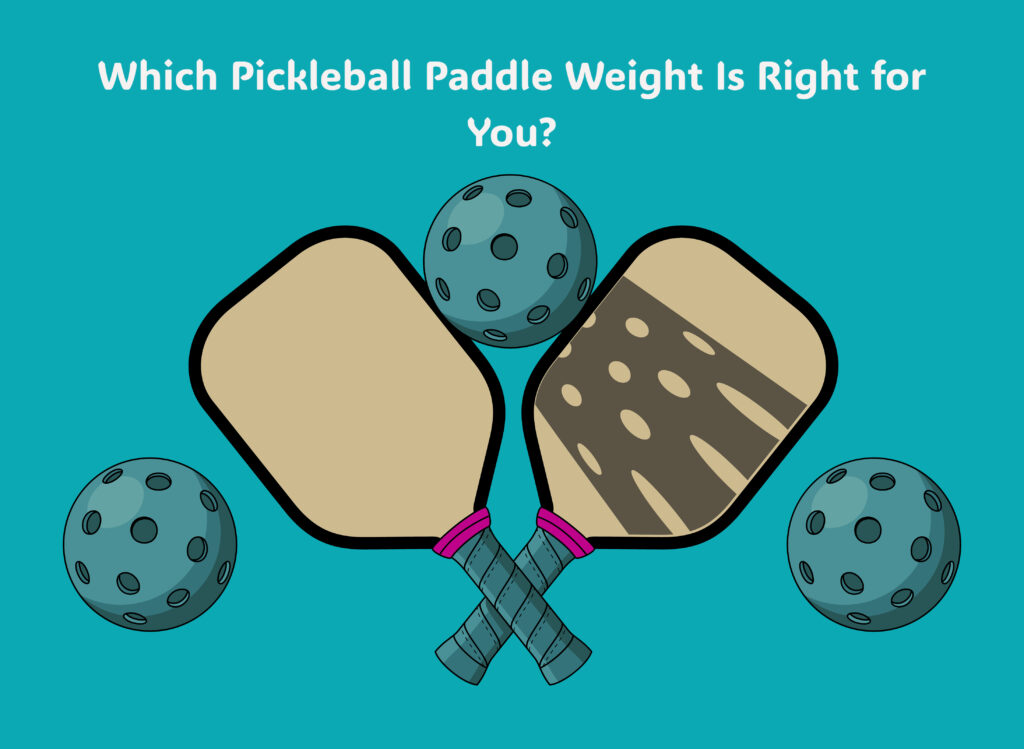Pickleball Players tap Paddles no matter the outcome, win or lose, players walk to the net, extend their paddles out, and give each other a quick “paddle tap.” It might look small or symbolic, but this simple gesture carries huge weight in the pickleball community. It’s not just about routine—it represents sportsmanship, respect, and the culture of the game itself.
If you’ve ever watched a game of pickleball—whether at your local UK club or on a livestreamed championship match—you’ll have seen players tapping paddles at the end of a game.
Paddle tapping is seen as a non-negotiable tradition. New players are taught it from their first session, and experienced players do it instinctively. So why do players tap paddles? Because it’s pickleball’s way of saying “well played,” “thank you,” and “let’s do that again” all in one gesture.
The Meaning Behind the Paddle Tap for Beginners
For those new to pickleball in the UK, the paddle tap might feel unfamiliar at first—especially if you come from a background in tennis or other racquet sports where post-match handshakes aren’t always guaranteed. But in pickleball, it’s baked into the culture. The paddle tap is a way of acknowledging your opponents and partner, regardless of the score.
What beginners should understand:
✔ It replaces the handshake—especially since pickleball exploded during the pandemic.
✔ It’s non-verbal sportsmanship, done quickly but sincerely.
✔ It signals the end of the match and the beginning of friendly post-game banter.
✔ Everyone participates—win or lose, good match or frustrating one.
✔ It shows that fun and fair play are more important than the outcome.
At UK clubs, paddle tapping is often accompanied by a smile, a quick “cheers,” or “nice game.” It reinforces that pickleball is about connection and community, not just competition. So if you’re a beginner, don’t worry about your score—just remember to tap paddles and thank your fellow players for sharing the court.
🔥 Key takeaway: For new players, paddle tapping is your first lesson in pickleball etiquette—simple, friendly, and absolutely essential.
At the Intermediate Level: Reinforcing Respect and Resetting Rivalries
As you start to play more regularly and competitively—joining UK club leagues, ladders, and local tournaments—the paddle tap becomes more than a casual tradition. It’s a moment of reset, where players show mutual respect after intense rallies, close calls, and sometimes heated games. At this level, emotions can run high—but the paddle tap keeps things grounded.
Why it matters for intermediates:
✔ It shows maturity and appreciation for your opponents’ efforts.
✔ It helps cool down tension, especially after close or contentious games.
✔ It strengthens community bonds—you’ll see these players again.
✔ It creates a shared moment of mutual respect, even in defeat.
✔ It reminds you that winning isn’t everything—how you play matters too.
In UK club play, where players often rotate and face each other weekly, the paddle tap ensures that rivalries stay friendly and that club spirit remains intact. It’s not unusual to tap paddles, joke about that one mad rally, and head straight to the café for a cuppa. The best players know that while pickleball can be fiercely competitive, respect and sportsmanship are what keep people coming back.
🔥 Key takeaway: For intermediate players, paddle tapping maintains sportsmanship in competitive environments and keeps the game’s culture positive and welcoming.
For Advanced Players: Role Modelling and Preserving the Culture
At the highest level of UK pickleball—whether it’s national events, pro-level play, or top-tier club finals—the paddle tap carries added weight. Advanced players are more visible and often set the tone for others. The way they behave on court—including post-match etiquette—is noticed by juniors, beginners, and the broader community. Tapping paddles isn’t just about courtesy at this level—it’s about setting an example.
Why advanced players tap paddles without fail:
✔ It shows class, humility, and professionalism, even in high-stakes matches.
✔ It teaches newer players how to carry themselves on court.
✔ It creates unity and mutual respect among elite competitors.
✔ It’s part of upholding pickleball’s values of fairness, fun, and respect.
✔ It helps diffuse pressure and reset focus for future matches.
In competitive UK circuits, where matches can be fiery and intense, you’ll always notice that the best players still honour this tradition. Paddle taps might be followed by a handshake or quick debrief—but they always happen. And when someone forgets? You can bet they’ll be reminded—not out of judgement, but to preserve what makes pickleball different from every other sport.
🔥 Key takeaway: For advanced players, paddle tapping is about leadership and legacy—it protects the spirit of the game for generations to come.
Beyond the Match: How Paddle Tapping Strengthens UK Pickleball Culture
In British pickleball communities, etiquette is everything. Clubs from Cornwall to the Highlands are built not just on skill, but on kindness, respect, and inclusivity. Paddle tapping, while simple, is one of the strongest rituals keeping that culture alive. It tells players of every level, “You belong here,” and “You’re part of this game.” Especially in mixed-level sessions, it closes the gap between newcomers and veterans.
More reasons paddle tapping matters:
✔ It connects players who might not know each other yet.
✔ It fosters inclusivity—everyone plays, everyone is appreciated.
✔ It helps establish pickleball as a sport with heart, not just hustle.
✔ It sets UK pickleball apart from more individualistic or tense racquet sports.
✔ It’s a small act that carries a big message: we play hard, but we play fair.
As more UK clubs grow, welcome new members, and host bigger events, traditions like the paddle tap will be crucial to maintaining that sense of camaraderie and joy. And best of all? It takes less than two seconds.
🔥 Key takeaway: Paddle tapping is more than a gesture—it’s the handshake of a modern, inclusive sport that prioritises people over points.
Final Thoughts: It’s Not Just a Tap—it’s the Spirit of the Game
The paddle tap may seem minor, but it carries the full weight of what pickleball stands for—respect, sportsmanship, connection, and fun. It’s a moment shared by four people at the end of a hard-fought match, a nod of mutual appreciation, and a reminder that how you play the game matters just as much as the score.
Key Takeaways:
✔ Paddle tapping is a symbol of sportsmanship in every UK pickleball club.
✔ Beginners use it to connect; intermediates use it to reset; pros use it to lead.
✔ It reinforces the community spirit and inclusive nature of the sport.
✔ It’s a ritual that keeps the game respectful, light-hearted, and welcoming to all.
✔ In the UK pickleball scene, it’s more than etiquette—it’s identity.
👀 Enjoyed this read? Fancy levelling up your game even more? Keep reading Dink Quest for the best pickleball tips, drills, and news in the UK!
🎯 Check out these popular posts next:
📬 Subscribe to the Dink Quest newsletter to Stay in the Loop and be the first to get new blog posts, UK pickleball news, tips, player spotlights and exclusive offers
👉 Click here to subscribe now
Get discounts and exclusive offers for Paddles, clothing and accessories from our shop
We’ve got plenty more where that came from! Whether you’re working on your third shot drop, curious about dinking strategies, or just figuring out how to hold your paddle without it flying across the court we’ve got you covered.
👉 Keep reading, keep learning, and keep dinking smart. Let’s grow the game together, one dink at a time. 💚
See you on the court!
The Dinkquest Team UK 🏓


